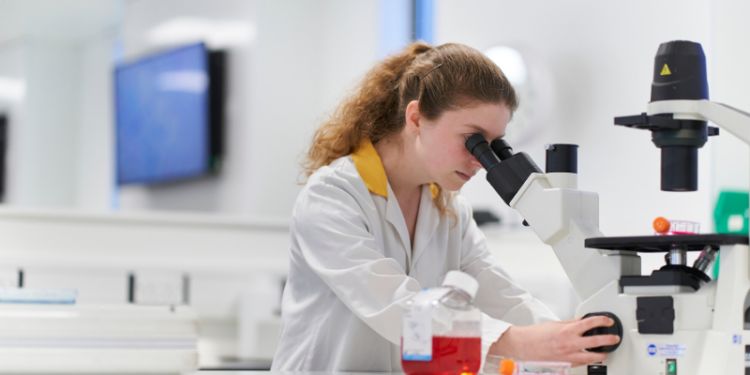Biological Sciences vs Biology

What's the difference?
Your experience of studying life sciences before university usually involves studying a wide range of topics under the broad umbrella of “Biology”, but at degree level, you’re invited to specialise a little further.
Biology, Biological Sciences and Biomedical Sciences all cover a broad range of interesting topics and open up a world of exciting career options. Plus all three areas offer a lot of flexibility and choice, so you can personalise your degree as you study and your interests develop.
Each course gives you the chance to undertake an independent research project, experience an industrial placement or study year abroad.
The choice very much depends on your personal interests, so consider what you have enjoyed studying the most so far and where you think you’d like to take your studies in the future.
Biology
Are you interested in whole organism biology; how microbes, plants and animals function? Are you fascinated by how organisms interact with each other and their environments? Do you want to understand organismal evolution and genetics? Biology might be the route for you.
Our BSc Biology course is a broad-based degree with an emphasis on organismal biology.
You’ll gain an understanding of biology at many different levels, from the molecular biology of the cell, through how animals and plants function as organisms, to their ecological interactions with each other and the environment.
The core subject areas you’ll study throughout your degree will include genetics, animal biology, plant biology and ecology/evolution.
From your second year you can choose to specialise in areas such as ecology, behaviour and conservation biology, or in the molecular and genetic aspect, which gives you chance to develop broad knowledge as well as graduating with a specialism.
If your interests lie specifically within one of those areas, you should consider one of our more specialist biology degrees, such as Ecology and Conservation Biology, Zoology or Genetics.
Career options: Biology graduates can go down a number of career paths, students from Biology have gone on to be a:
- Research Bioscientist
- Wildlife Film Maker
- Biocontamination Technician
- Senior Species Ecologist
- Senior Plant Health and Seeds Inspector
- Policy Adviser: International Biodiversity
- Epidemiologist
Biological Sciences
Do you want to study a broad range of topics across molecular and cellular life sciences? Do you love to analyse and apply yourself in the lab? Biological Sciences might be your best option.
You’ll gain a thorough understanding of how living cells work, from generating energy to adapting to changes in their environment, and understand the science underpinning globally important topics including emerging infections, how drugs work, the role of our genome in determining our health, and use of genetic engineering techniques to maintain food production in response to climate change.
You’ll study a wide range of organisms, from viruses to humans, and study a variety of topics including cell biology, biochemistry, genetics, immunology and microbiology in your broad first year. This breadth of learning gives you lots of flexibility and choice, with options to transfer onto a more specialised degree such as Genetics or Microbiology.
In your second year and beyond you’ll follow one of four themes: Molecular Medicine; Infection and Disease; or Genome Biology and Disease to allow you to tailor your studies to your particular area of interest.
Career options: Biological Sciences graduates can use their skills and knowledge to enter into lots of roles, including:
- Research & Development Scientist
- Molecular Biologist
- Scientific Advisor
- Biotechnology Specialist
- Clinical Research Associate
- Medical Sales representative
- Postgraduate Medicine
- Corporate Audit graduate trainee
If your interests in life science include whole organism as well as molecular aspects, and you would like to study topics such as ecology, animal behaviour, animal/plant physiology and evolution, then BSc Biology may be your best choice.
In contrast, BSc Biological Sciences is a degree that focuses on understanding biology at the molecular and cellular levels. If this is what you are interested in, then this degree may be your best choice.

